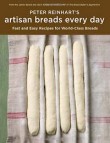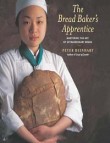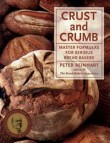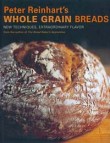My Coffee Farm Quest, Part Two
Note to readers from Peter: This is the the second part of Jenn Burn’s recent adventure in Costa Rica, picking beans on an organic coffee farm as part of a work study project. Jenn is a student at Davidson College, just outside of Charlotte, and has previously had numerous articles published that chronicle her transition from teenager to young adulthood (I hope to run some more of those here in the future–you can read more about her on our Contributor Profiles page). She is currently working with her college to bring locally produced food products onto the school’s food service menu, for the benefit of the students and also to support local, sustainable agriculture. If you haven’t read Part One of her Coffee Farm Quest, you will find it in full on the Guest Column page, and I suggest you read it first before moving on to this installment.
Day 4: We went to a conventional farm today. As we approached the farm, Always Accurate Achim stopped the van and told us all to get out because we weighed too much. He wasn’t kidding. We had to walk the last hill as the van had no chance of making it with all of us aboard. This road was so steep that with only my socks on, I slid downward. The next day the van died earlier on the ascent. Always Accurate Achim bellowed, “someone got fat”. I am not yet ready to relive this day; as I moaned just before lunch, “We have hit rock bottom”. I was itchier, colder, and more wet than I had ever previously been in my life.
Day 5: Today, I listened. The sound of a coffee farm, a coffee farm being intently scrutinized by nine loud gringos and one German, is not the sound of nature. As each person collected samples, identified trees, or meticulously measured coffee plants, there were random bursts of noise. Of course, each member of our team had their own unique shriek when they slipped. Additionally, partners exchanged information across the farm so we heard yells of, “Leeeeaaaaffff liiitttttter” or “broad-leafed herrrrrbs,” each with unique (and probably unnecessary) tonal inflection. And, with the most regularity, we heard, “Where are you?” screamed as loudly as possible. If there is a response at all, it is hardly helpful, as the only landmarks are coffee and large trees.
In addition to learning how to distinguish between types of ground cover, I picked up some interesting knowledge about coffee. Globally, coffee is a $100 billion industry, and is the world’s second most traded commodity after oil. Costa Rica is the 12th largest producer in the world. There are about 250,000 acres of coffee in Costa Rica, grown by some 70,000 producers, meaning most farmers have between just two and three acres. On average, organic coffee farms produce less, sometimes as little as half as much as conventional farms. Consequently, organic farmers are often dependent on the premium prices of organic coffee, which are usually 20-25% higher than conventional prices. Yet, some organic farms out-produce their conventional counterparts; it depends on the whole system. To do organic successfully, farmers must be dedicated and not just adhere to the bare minimum of regulations.
The organic farmers I met in the central valley believe in what they are doing whole heartedly, which is necessary, as it definitely isn’t about profit. One farmer whose organic field we surveyed, Allen Esquivel, switched from conventional to organic beans eight years ago after being hospitalized because of a chemical he used to apply to his fields. It is now banned from the market due to its toxicity. He no longer uses chemicals. Allen says, “Organic farming is not
about making a profit; it is a way of life.” Another organic farmer, Gerardo Calderon, spoke about the synergies of life. He grows organically because it is better for his health and the health of the environment. To enhance his economic sustainability, many of his shade trees are also edible fruiting trees such as banana, mango, jacote, guanabana and guava. He also makes up for the lack in profit by roasting and directly selling some of his beans.
About 40% of farms in Costa Rica are certified something (Rainforest Alliance, sustainable, etc.), but only 1% are certified organic. How is the consumer supposed to distinguish between these countless certifications? It is impossible. I won’t bore with you the results of my research, but trust me, organic agriculture had significantly (statistically proven) higher levels of environmental services. Visually, it was obvious. Both organic farms we studied were bordered by conventional farms. It was like night and day; you could easily see where one farm ended and the next began. The organic farm had lots of trees, healthy soil, and the ground was covered by grasses and herbs. The conventional farm looked dead.
Day 6: In addition to destroying any trace of a path and taking out at least a few coffee plants that couldn’t hold our weight (and even one tree); we picked quite a few coffee beans. Surprisingly — or perhaps not given their name and that they are the plant’s fruit — coffee “cherries” are sweet! We sampled many cherries, sucking the juice out and enjoying the sweet aftertaste. Of course, we didn’t do this on the conventional farm, as even just brushing against the plants left enough chemical residues to make me want to itch my arms raw. I am surprised coffee in its pure form isn’t more popular. Not only is it subtly sweet, but also the cherries are a beautiful shade of red when ripe (or yellow, depending on the species), which strongly contrasts with the green of the surrounding forest. One of the sustainable farms we visited processes their own beans, and they are looking to sell the juice of the fruit — “sweet water” they call it — as a healthier, natural sweetener.
Although I gained a greater appreciation for coffee, I think that I am further than ever from understanding the café craze in the United States. Regularly, I hear my fellow coeds saying that they need coffee before class or to finish a project. Interestingly, the cherries do not have the same buzz-inducing properties that they later develop when dried and roasted. While so many people feel that sipping a warm mug full of Joe is comforting, it would be hard to find a food that people are more removed from than coffee. Granted there is much talk these days about organic, shade-grown, and fair trade coffee, but with so many labels and so little first-hand knowledge, it is impossible to make a realistic judgment. I thought I knew a lot about coffee, as I was well-versed in the various social issues and economic intricacies, but I had no idea. Picking a coffee bean by myself taught me more than any book ever could.
Recent Articles by Jenn Burns
Comments
Add Comment
You must be logged in to post a comment.










Some cultures and people do not consume meat or animal food products for cultural, dietary, health, ethical, or ideological reasons. Vegetarians do not consume meat. Vegans do not consume any foods that are or contain ingredients from an animal source. Thanks a lot.
This is a great post, I found your site for a related topic and came to this. I do not find too many other details in this regard, so happy to find it.